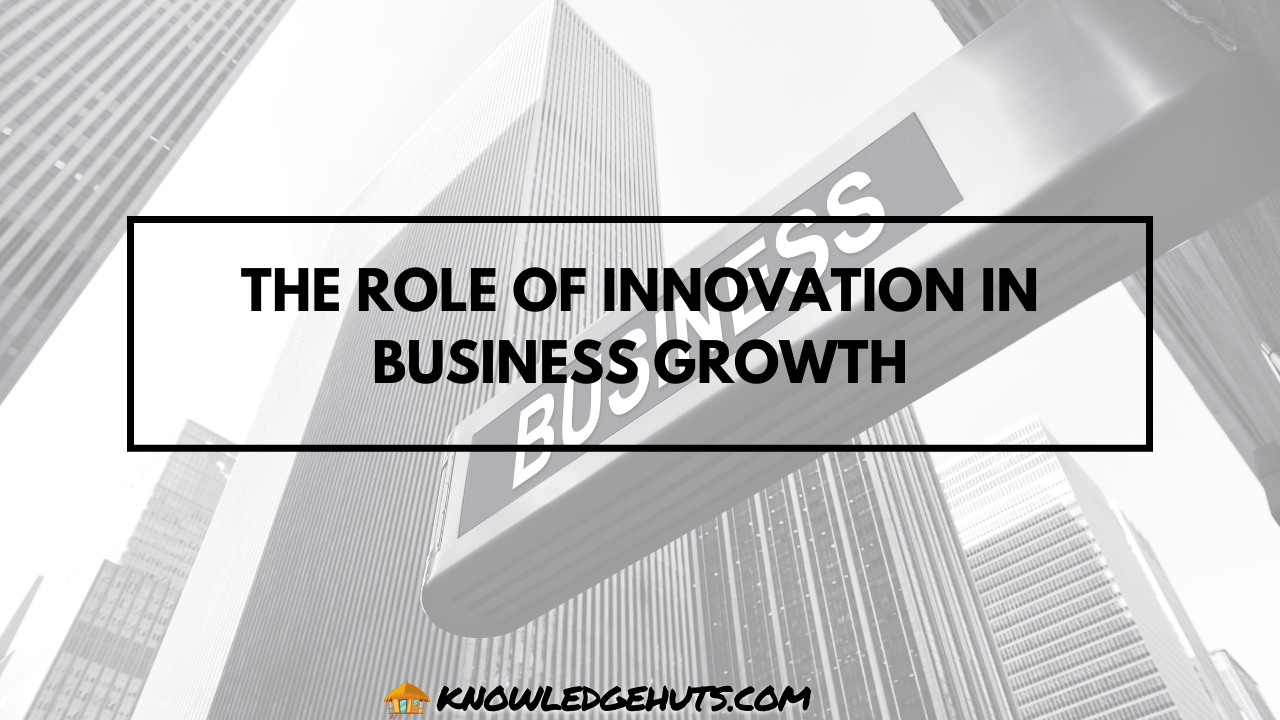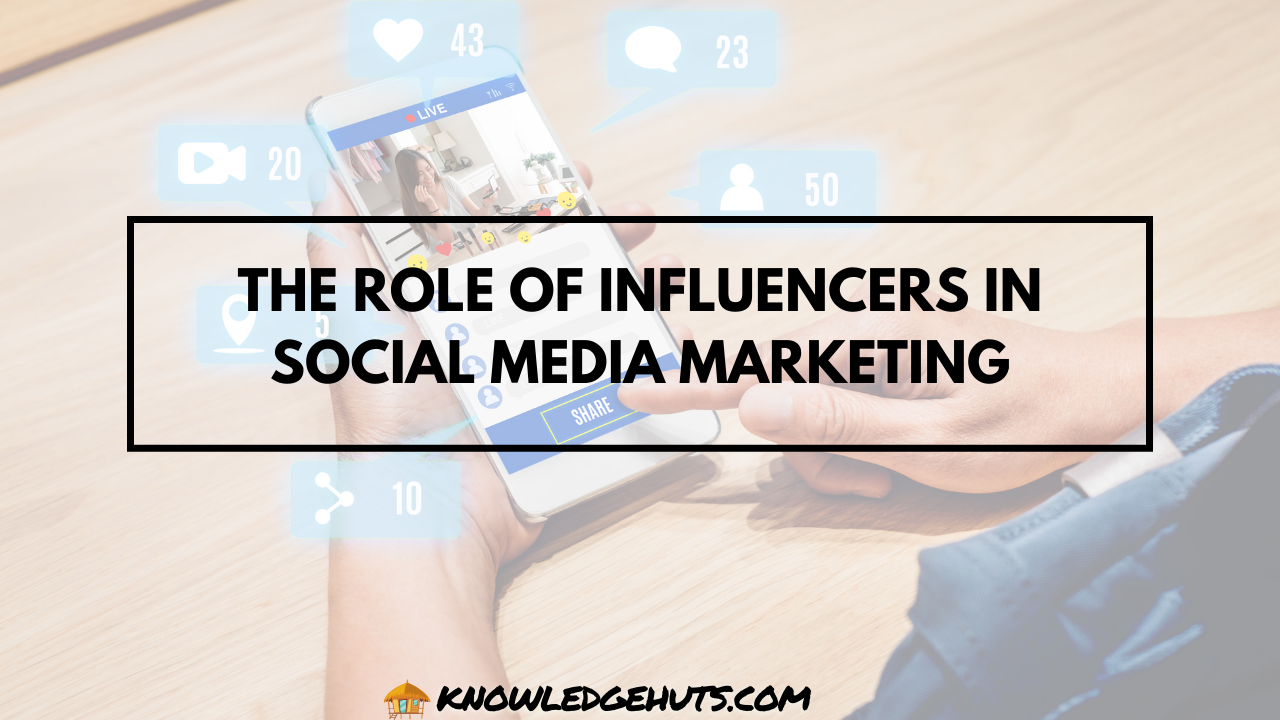Search Engine Optimization (SEO) has been a vital strategy for businesses seeking to improve their online visibility and drive organic traffic to their websites. As search engines have evolved, so too has SEO, with an increasing reliance on artificial intelligence (AI) to enhance how search results are ranked and how content is optimized. AI is revolutionizing SEO by making search engines smarter, improving content relevance, and enabling businesses to optimize their websites with greater precision.
In this blog post, we will explore The Role of Artificial Intelligence in the Future of SEO, how it’s changing the landscape for digital marketers, and what businesses need to know to stay ahead of the curve. We’ll discuss the impact of AI on search algorithms, content creation, user experience, and the tools that are reshaping SEO strategies.
Understanding AI in SEO
Artificial Intelligence refers to the simulation of human intelligence in machines that are programmed to think, learn, and adapt. In the context of SEO, AI is used to analyze and process large amounts of data, helping search engines understand the intent behind search queries, personalize search results, and rank content more effectively.
How AI is Changing SEO
AI is having a profound impact on SEO in several ways:
- Smarter Search Algorithms: AI helps search engines like Google refine their algorithms to better understand search intent and provide more relevant results.
- Enhanced User Experience: AI helps analyze user behavior, enabling search engines to rank content based on factors like engagement, bounce rates, and time spent on a page.
- Content Optimization: AI-driven tools assist marketers in optimizing content by analyzing keywords, readability, and relevance to search queries.
- Voice Search: With the rise of voice search, AI helps understand natural language processing, making it easier for users to find relevant information using conversational queries.
- Automation: AI enables automation of various SEO tasks, such as keyword research, competitive analysis, and performance monitoring, freeing up time for strategic decision-making.
Quote: “Artificial Intelligence is not just changing the way search engines work; it’s transforming the entire SEO landscape, making it smarter, faster, and more intuitive.” — Sarah Collins, SEO Strategist
AI and Search Algorithms
Search engines, particularly Google, use AI to enhance their search algorithms, ensuring that users get the most relevant and accurate search results. Google’s RankBrain and BERT (Bidirectional Encoder Representations from Transformers) are two prime examples of how AI is transforming search algorithms.
RankBrain: The AI Behind Search Results
RankBrain is an AI-based algorithm that helps Google process search queries by interpreting their meaning and relevance. It enables Google to understand user intent better, even when dealing with ambiguous or unfamiliar search terms. RankBrain analyzes historical search data and patterns to determine the most relevant results for new queries.
Key Features of RankBrain:
- Contextual Understanding: Instead of matching keywords, RankBrain focuses on understanding the context of a query, making it possible to provide more accurate results.
- Learning from Behavior: RankBrain learns from how users interact with search results, continuously improving its ability to rank content based on user satisfaction.
BERT: Understanding Natural Language Processing (NLP)
Google’s BERT algorithm is another AI-driven advancement that focuses on natural language processing (NLP). BERT helps Google understand the nuances of language, enabling the search engine to interpret the meaning of prepositions, phrases, and the overall context of a query.
Impact of BERT on SEO:
- Improved Query Understanding: BERT allows Google to better understand the intent behind long-tail and conversational queries, which is especially useful for voice search.
- More Relevant Results: By analyzing the context of a search query, BERT delivers results that are more closely aligned with the user’s intent, improving the overall search experience.
Example Table: AI-Driven Search Algorithms and Their Features
| AI Algorithm | Description | Impact on Search Results |
|---|---|---|
| RankBrain | AI algorithm that interprets query meaning | Provides more relevant results based on intent |
| BERT | NLP algorithm that understands language nuances | Delivers accurate results for conversational queries |
AI and Content Optimization
One of the biggest challenges in SEO is creating content that not only appeals to users but also ranks well on search engines. AI-driven tools are transforming content optimization by providing insights into keyword usage, content structure, and relevance.
AI-Powered Keyword Research
Traditionally, keyword research was a manual process that involved identifying popular search terms and incorporating them into content. AI has streamlined this process by analyzing vast amounts of search data and providing more accurate keyword recommendations based on user intent.
AI Tools for Keyword Research:
- SEMrush and Ahrefs: These AI-powered tools help identify relevant keywords, analyze search volume, and evaluate keyword difficulty, making it easier for marketers to target the right terms.
- LSI (Latent Semantic Indexing) Keywords: AI tools can identify LSI keywords—related terms that add context to a primary keyword—helping content rank better by improving relevance.
Quote: “AI-driven keyword research tools have taken the guesswork out of SEO, enabling marketers to create data-driven strategies that align with user intent.” — John Wilson, Digital Marketing Expert
Content Generation and AI
AI is also playing a role in content creation. While AI-generated content is not yet capable of replacing human writers for complex topics, it’s being used to assist with writing tasks such as product descriptions, FAQs, and basic blog posts.
AI Tools for Content Creation:
- GPT-3: AI models like OpenAI’s GPT-3 are capable of generating human-like text based on prompts, making them useful for producing SEO-friendly content quickly.
- Copy.ai and Jarvis: These AI tools help marketers generate headlines, social media posts, and short-form content, ensuring that it aligns with SEO best practices.
Example Table: AI Tools for Content Optimization
| AI Tool | Functionality | Benefit to SEO |
|---|---|---|
| SEMrush | Keyword research and competitive analysis | Identifies relevant keywords, improves targeting |
| GPT-3 | AI-based content generation | Generates SEO-friendly text, saves time |
| Copy.ai | Assists with creating headlines and short content | Enhances content relevance, boosts engagement |
AI and User Experience (UX)
User experience (UX) is a critical factor in SEO, as search engines prioritize websites that provide a seamless, enjoyable experience. AI plays a pivotal role in enhancing UX by analyzing user behavior and helping businesses optimize their websites for better engagement.
AI for UX Optimization
AI tools can analyze user behavior, such as how long visitors stay on a page, where they click, and what content they engage with. This data can be used to make informed decisions about website design, navigation, and content placement to improve UX.
AI-Driven UX Enhancements:
- Heatmaps: AI-powered tools like Crazy Egg and Hotjar generate heatmaps that show where users click and scroll on a webpage, helping businesses optimize layout and design for better engagement.
- Personalization: AI algorithms analyze user preferences and behavior to deliver personalized content, making the browsing experience more relevant and engaging.
Impact of AI on Core Web Vitals
Core Web Vitals are a set of metrics that Google uses to measure the quality of a website’s user experience, including loading speed, interactivity, and visual stability. AI tools help monitor and improve these metrics by analyzing website performance and suggesting optimizations.
AI Tools for Core Web Vitals:
- Google Lighthouse: This tool analyzes website performance, identifying issues related to speed, responsiveness, and layout shifts.
- PageSpeed Insights: Powered by AI, PageSpeed Insights provides detailed reports on how to improve a website’s loading time and user experience.
Example Table: AI Tools for UX Optimization
| AI Tool | Functionality | Benefit to User Experience |
|---|---|---|
| Crazy Egg | Generates heatmaps for user interaction analysis | Optimizes website layout, improves engagement |
| Google Lighthouse | Analyzes Core Web Vitals and website performance | Enhances loading speed, improves SEO ranking |
| PageSpeed Insights | Provides insights on improving page speed | Improves load times, enhances user satisfaction |
AI and Voice Search
The growing popularity of voice search is shaping the future of SEO, and AI is at the forefront of this shift. With the rise of smart assistants like Siri, Alexa, and Google Assistant, voice search is becoming a preferred method for users to find information.
AI and Natural Language Processing (NLP)
Voice search relies heavily on natural language processing (NLP), an AI technology that helps machines understand human speech. As more users adopt voice search, optimizing content for NLP will become a critical component of SEO strategies.
Key Aspects of Voice Search Optimization:
- Conversational Queries: Voice search queries tend to be longer and more conversational than typed queries. AI can analyze these queries and help businesses optimize their content to match the natural language used in voice searches.
- Featured Snippets: AI can identify opportunities to optimize content for featured snippets, which are often read aloud by voice assistants in response to voice search queries.
Quote: “With the rise of voice search, AI-driven natural language processing is becoming an essential tool for optimizing content that answers user queries in a conversational manner.” — Emma Jones, SEO Consultant
Optimizing for Voice Search with AI (continued)
AI tools can help businesses optimize their content for voice search by identifying long-tail keywords, analyzing query patterns, and ensuring that content is structured to answer common questions directly. Voice search is more conversational, and AI-powered SEO tools are well-equipped to analyze and generate content that mirrors natural language queries.
Steps to Optimize for Voice Search with AI:
- Focus on Long-Tail Keywords: Voice search queries are often more detailed and longer than text-based searches. AI tools like SEMrush and Ahrefs can help identify the specific long-tail keywords that users are more likely to speak rather than type.
- Optimize for Featured Snippets: AI tools can identify opportunities to rank in the coveted “position zero,” or featured snippets, which are frequently used in voice search responses.
- Leverage Structured Data: AI can help implement structured data (schema markup), which enables search engines to better understand and categorize your content, increasing the likelihood of appearing in voice search results.
- Analyze Conversational Queries: AI-powered tools can analyze natural language patterns to identify how people ask questions in everyday speech. This allows you to optimize your content to match the conversational tone of voice searches.
Example Table: AI Tools for Voice Search Optimization
| AI Tool | Functionality | Benefit to Voice Search Optimization |
|---|---|---|
| SEMrush | Identifies long-tail and conversational keywords | Improves ranking for voice search queries |
| Ahrefs | Analyzes query patterns and keyword difficulty | Helps target voice-friendly search terms |
| Schema Pro | Automates structured data implementation | Enhances chances of appearing in voice search results |
| Answer The Public | Identifies common questions and queries in natural language | Optimizes content for question-based searches |
AI and SEO Automation
AI is transforming how SEO tasks are managed by automating many time-consuming processes, allowing marketers to focus on strategy and creativity. From keyword research to site audits and content recommendations, AI tools are making it easier for SEO professionals to stay competitive in an ever-evolving landscape.
Automating Keyword Research
One of the most labor-intensive aspects of SEO is keyword research. AI tools like Moz and SEMrush automate the process by analyzing vast amounts of data, identifying relevant keywords, and even predicting trends in search behavior. This enables marketers to focus on optimizing content without spending hours on manual research.
Benefits of AI in Keyword Research:
- Predictive Analysis: AI tools can predict future search trends by analyzing historical data, allowing businesses to stay ahead of emerging trends.
- Keyword Difficulty Analysis: AI helps determine how difficult it would be to rank for a particular keyword, giving marketers a clearer picture of where to focus their efforts.
- Competitor Analysis: AI-powered SEO platforms can analyze competitors’ keyword strategies, helping businesses identify gaps and opportunities.
Automating SEO Audits
SEO audits are essential for maintaining website health and performance, but they can be time-consuming. AI-powered tools like Screaming Frog, Sitebulb, and DeepCrawl automatically audit websites for technical SEO issues, such as broken links, slow loading times, and missing meta tags.
How AI Improves SEO Audits:
- Real-Time Monitoring: AI can continuously monitor your website for performance issues, allowing you to make quick adjustments.
- Comprehensive Reports: AI tools generate detailed reports highlighting technical issues that need attention, making it easier to address them in a timely manner.
- Prioritization: AI tools can prioritize SEO fixes based on their potential impact, helping businesses focus on high-value improvements.
Example Table: AI Tools for SEO Automation
| AI Tool | Functionality | Benefit to SEO |
|---|---|---|
| SEMrush | Automated keyword research and analysis | Saves time, improves keyword targeting |
| Moz | Predictive analysis and keyword difficulty | Helps identify trends, focuses on achievable keywords |
| Screaming Frog | Automated SEO audits and error detection | Identifies technical issues, improves site health |
| DeepCrawl | Comprehensive site audits and real-time monitoring | Ensures ongoing website optimization |
AI for Link Building and Backlink Analysis
Link building remains a key factor in SEO, and AI is making the process more efficient by automating tasks such as identifying link-building opportunities, analyzing competitor backlinks, and managing outreach campaigns.
AI-Driven Link Building:
- Backlink Analysis: AI tools like Ahrefs and Majestic provide comprehensive insights into backlink profiles, helping businesses identify high-quality links and remove toxic ones. A backlink management tool can further help in organizing and tracking these links efficiently.
- Outreach Automation: AI tools can automate email outreach for link-building campaigns, personalizing messages and tracking responses to maximize efficiency.
- Competitor Link Analysis: AI can analyze competitors’ backlink strategies, helping businesses identify potential link-building opportunities.
Quote: “AI simplifies the most tedious aspects of SEO, such as link-building and competitor analysis, allowing marketers to focus on more strategic efforts.” — Emily Watson, SEO Consultant
Example Table: AI Tools for Link Building
| AI Tool | Functionality | Benefit to Link Building |
|---|---|---|
| Ahrefs | Backlink analysis and competitor link tracking | Identifies high-quality link opportunities |
| Majestic | Analyzes backlink profiles and domain authority | Helps build stronger link-building strategies |
| Pitchbox | Automates outreach for link-building campaigns | Saves time, increases outreach effectiveness |
AI and Local SEO
Local SEO has become a critical component for businesses seeking to attract customers in specific geographic locations. A Local SEO AI tool can enhance local SEO efforts by analyzing local search trends, managing Google My Business (GMB) profiles, and providing insights into local search behavior.
AI for Local Search Optimization
AI tools help businesses optimize their local SEO by identifying relevant local keywords, tracking local search performance, and analyzing customer reviews. These insights can be used to optimize Google My Business listings, improve local rankings, and attract more foot traffic.
AI-Driven Local SEO Enhancements:
- GMB Management: AI tools can automatically update and optimize Google My Business profiles, ensuring accurate and up-to-date information.
- Review Analysis: AI tools can analyze customer reviews to identify trends, monitor sentiment, and suggest responses that improve customer satisfaction and local rankings.
- Local Keyword Research: AI tools like BrightLocal and Whitespark provide insights into local search queries, helping businesses optimize content for location-based searches.
Example Table: AI Tools for Local SEO
| AI Tool | Functionality | Benefit to Local SEO |
|---|---|---|
| BrightLocal | Local keyword research and performance tracking | Improves visibility in local search results |
| Yext | GMB management and review monitoring | Enhances local listings, improves rankings |
| Whitespark | Analyzes local search trends and competitor rankings | Provides insights into local SEO opportunities |
The Future of AI in SEO
As AI continues to evolve, its role in SEO will expand, making optimization more efficient, personalized, and data-driven. Here are some trends to watch for in the future of AI-powered SEO:
1. Hyper-Personalization of Search Results
AI will continue to make search results more personalized by analyzing user behavior, preferences, and past interactions. This means that no two users will see the same search results, as AI will tailor content to individual preferences.
2. AI-Powered Visual Search
With advancements in image recognition technology, AI will enable more sophisticated visual search capabilities, allowing users to search using images rather than text. This will open up new opportunities for optimizing visual content in SEO strategies.
3. Predictive Search Optimization
AI will predict user search intent more accurately, allowing businesses to optimize content for future trends before they emerge. Predictive SEO tools will analyze historical data and user behavior to forecast shifts in search behavior and keyword popularity.
4. Fully Automated SEO
In the future, AI will handle a larger portion of SEO tasks autonomously, from keyword research to content creation and site optimization. Marketers will rely more on AI to manage routine tasks, while focusing on high-level strategy and creativity.
Quote: “The future of SEO is AI-driven, with smarter algorithms, more personalized experiences, and automation transforming the way we approach search optimization.” — Mark Dawson, Digital Marketing Expert
Example Table: Future Trends in AI-Powered SEO
| AI Trend | Description | Impact on SEO Strategy |
|---|---|---|
| Hyper-Personalization | AI tailors search results to individual preferences | Increases user engagement, improves relevance |
| Visual Search | AI-powered image recognition for search | Opens new opportunities for optimizing visual content |
| Predictive Search Optimization | AI predicts future search trends | Allows businesses to stay ahead of emerging trends |
| Fully Automated SEO | AI handles routine SEO tasks autonomously | Frees up time for strategic planning and creativity |
Conclusion
The role of Artificial Intelligence in the future of SEO is undeniable. AI is reshaping every aspect of SEO, from how search engines interpret queries to how businesses optimize content and improve user experience. As AI continues to evolve, it will play an even more central role in driving SEO strategies, making them more efficient, data-driven, and responsive to changing user behavior.
By embracing AI-powered tools and techniques, businesses can stay competitive in an increasingly digital landscape. From optimizing for voice search to automating keyword research and analyzing user behavior, AI offers a wealth of opportunities for businesses looking to enhance their SEO efforts and drive growth in the years to come.








